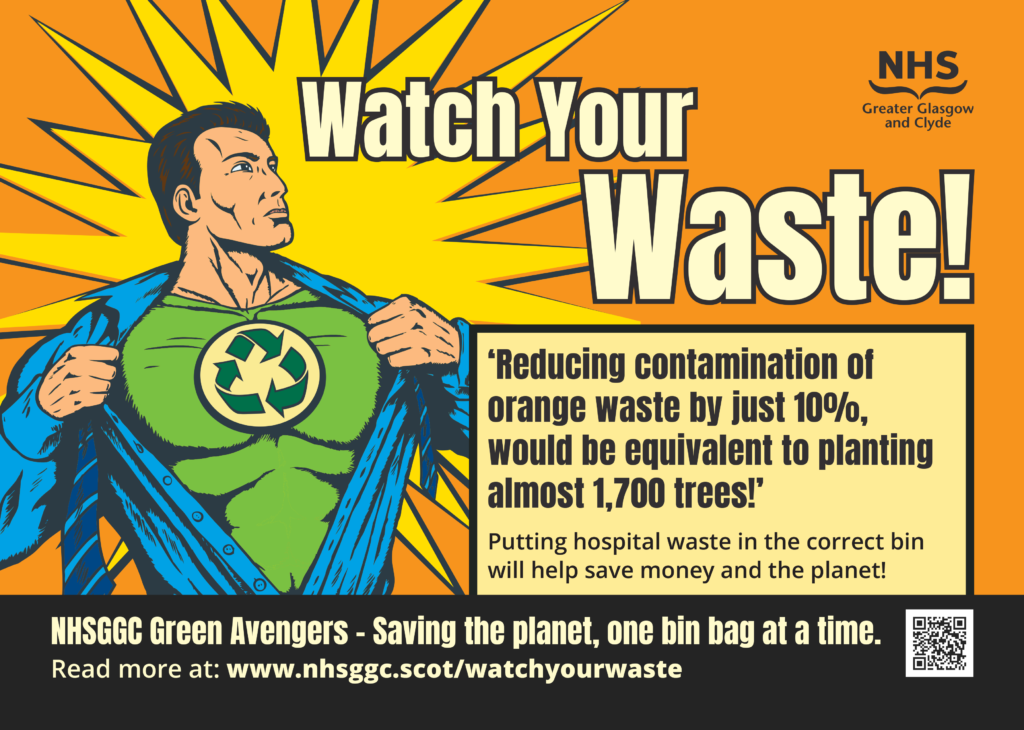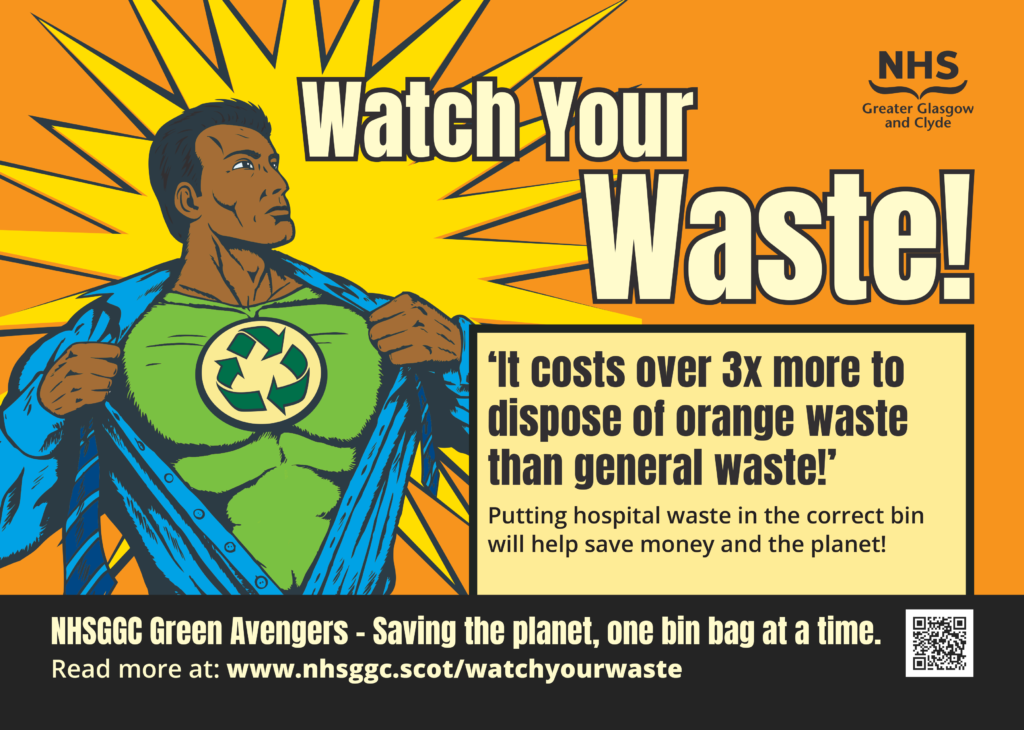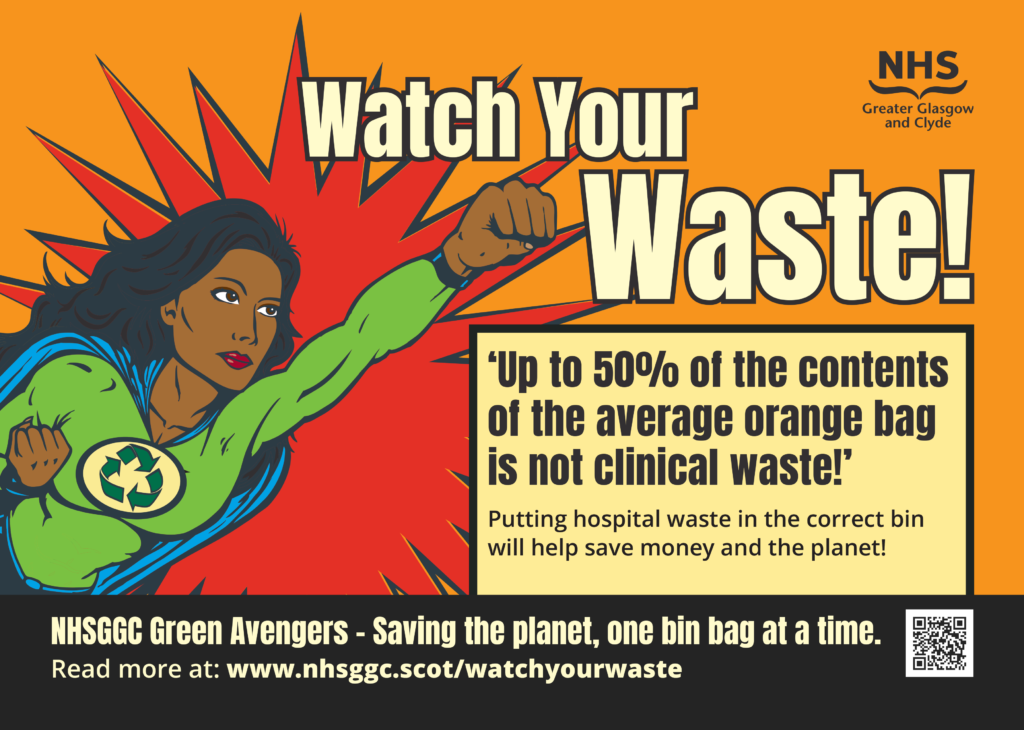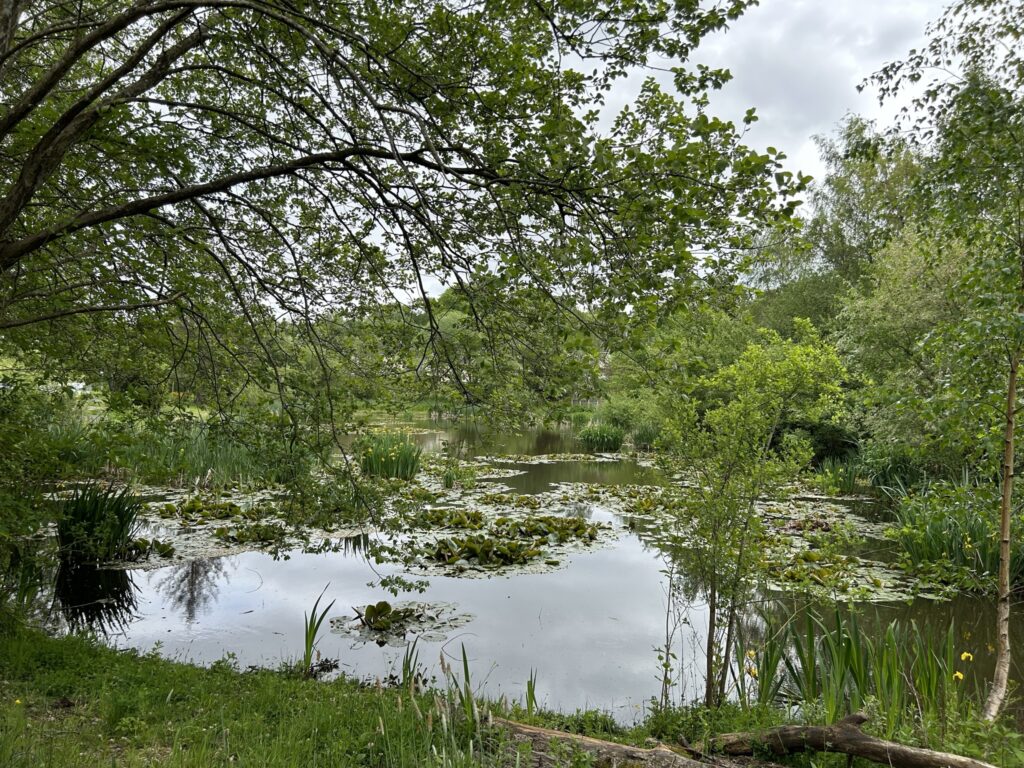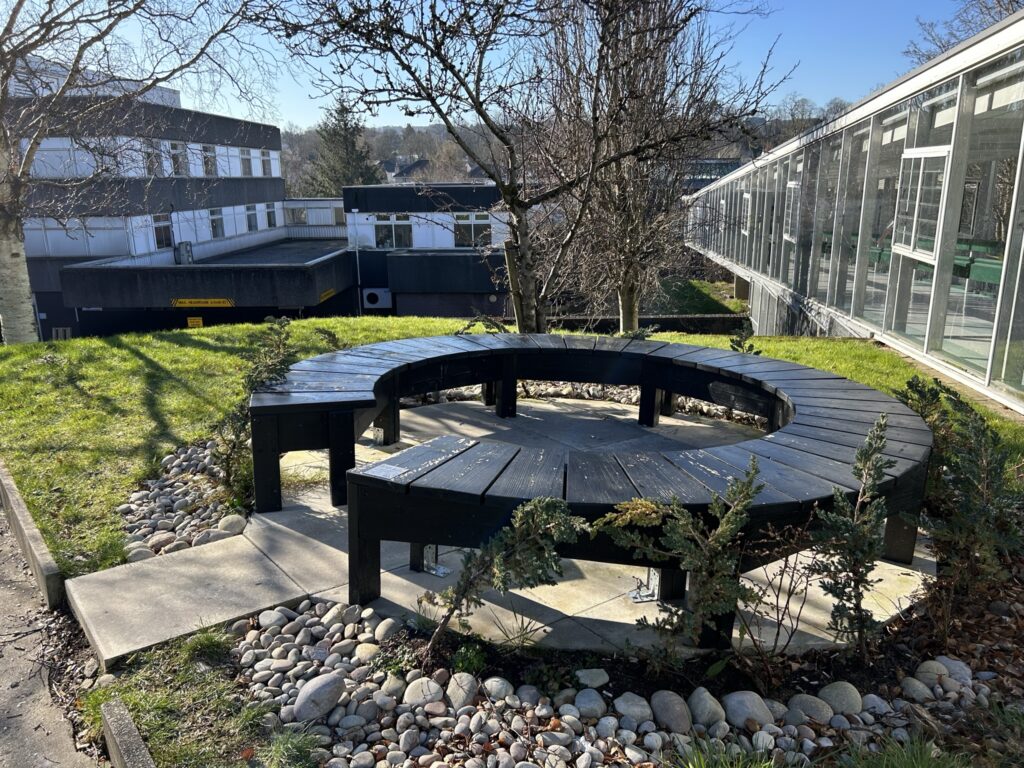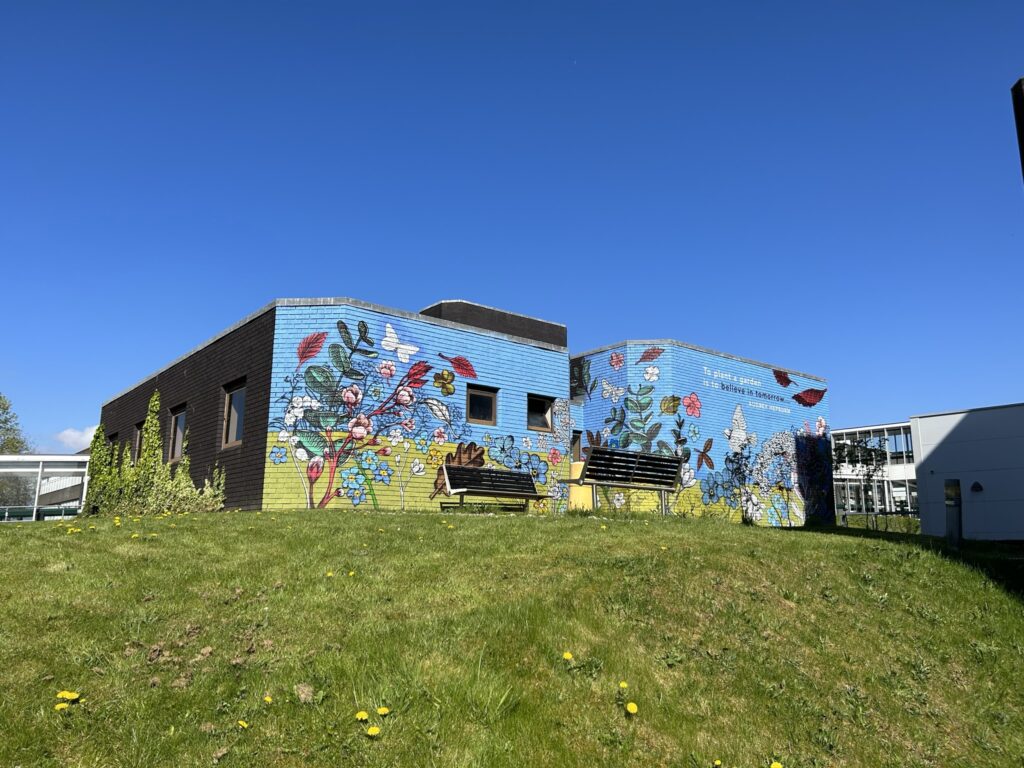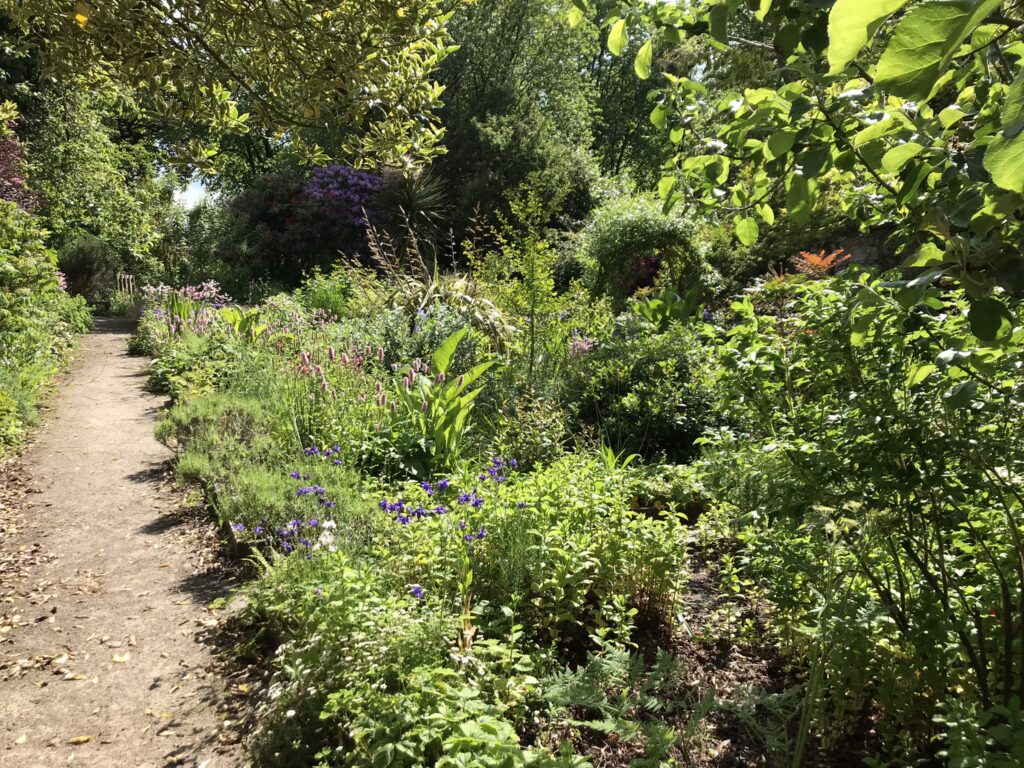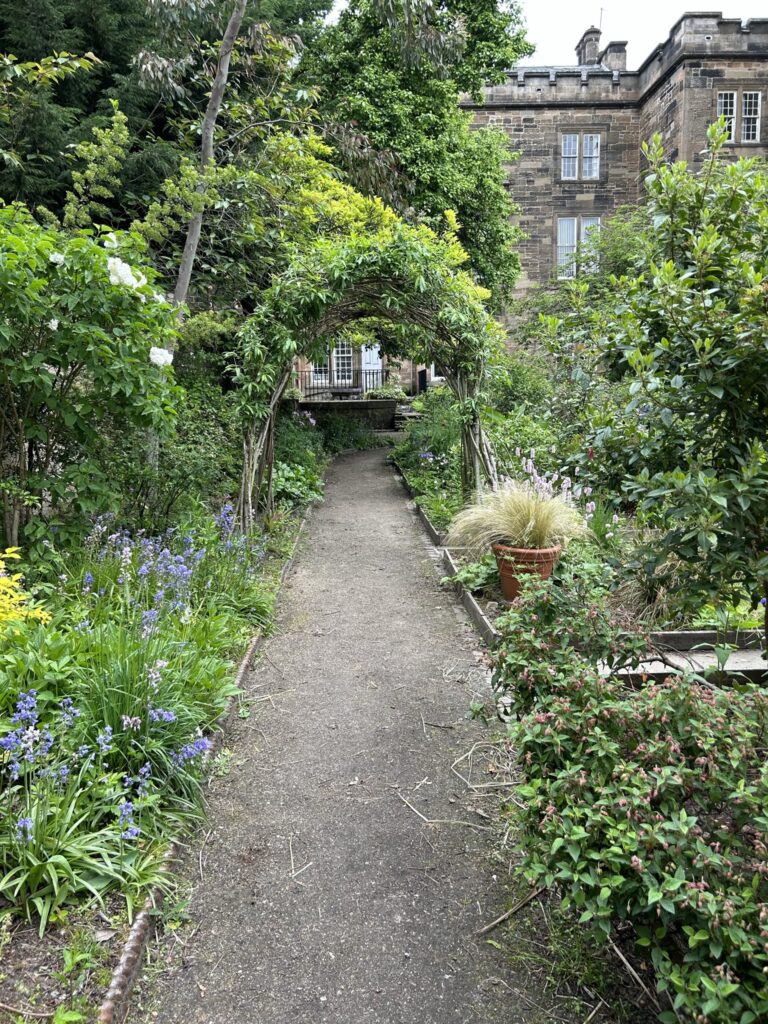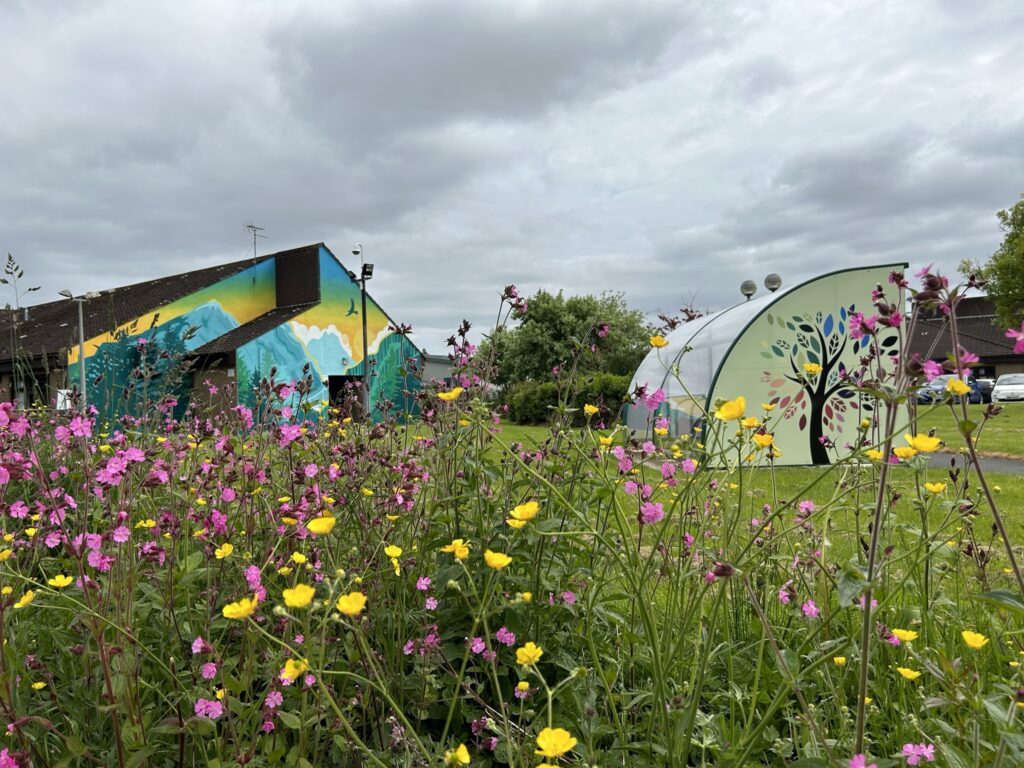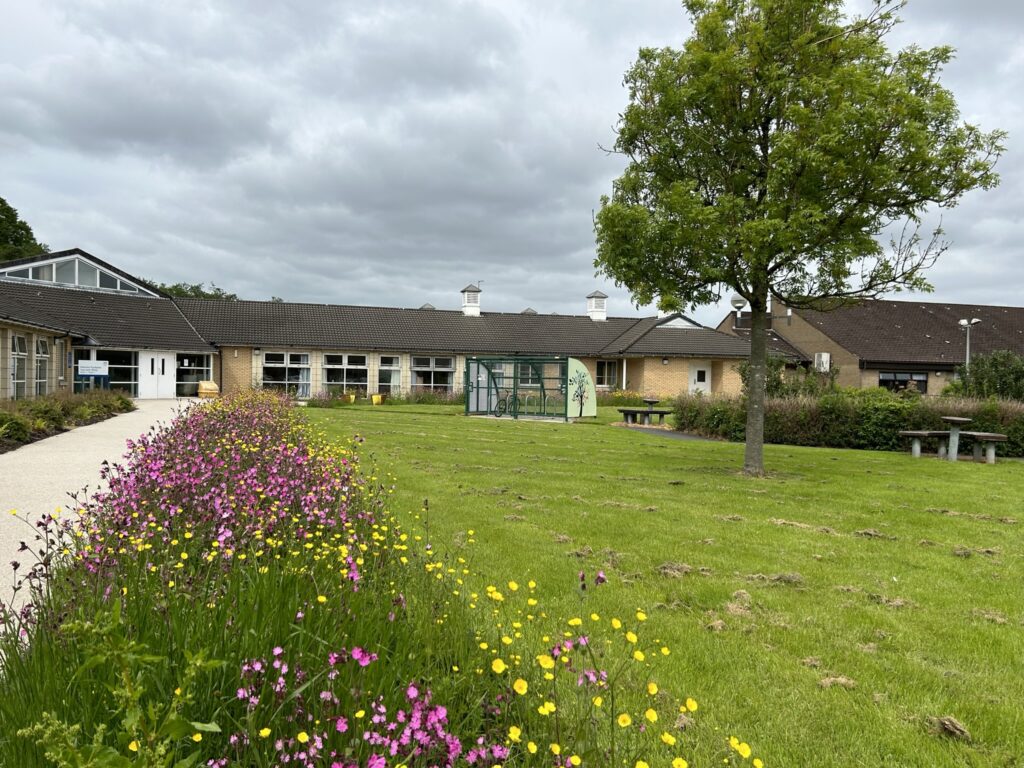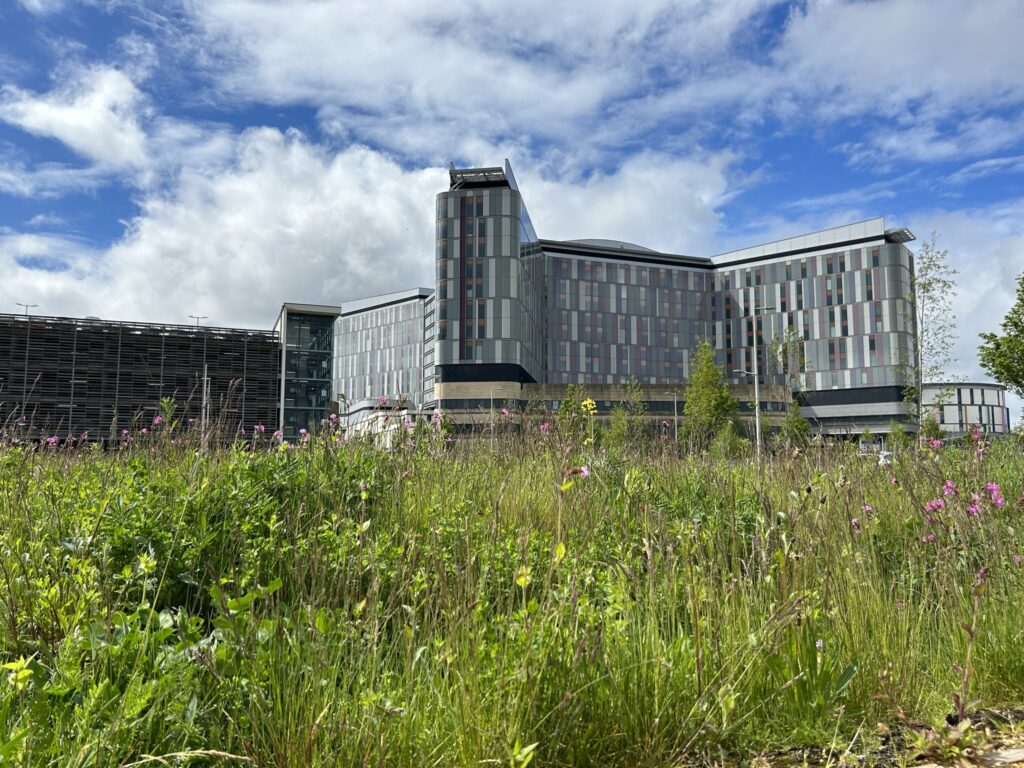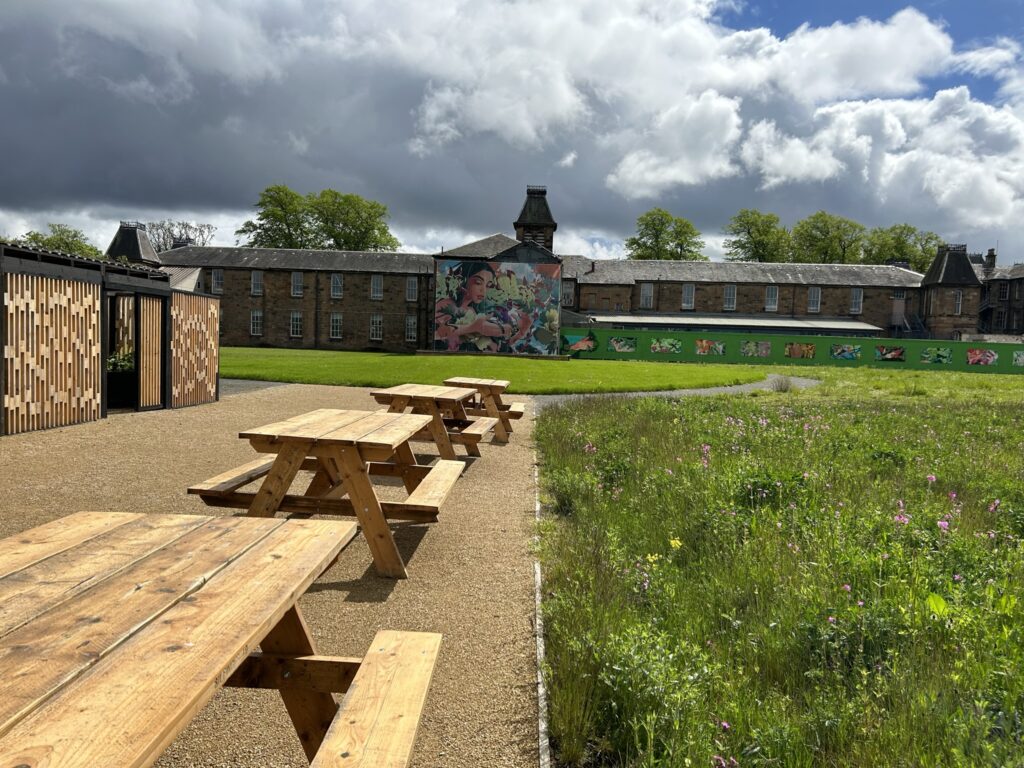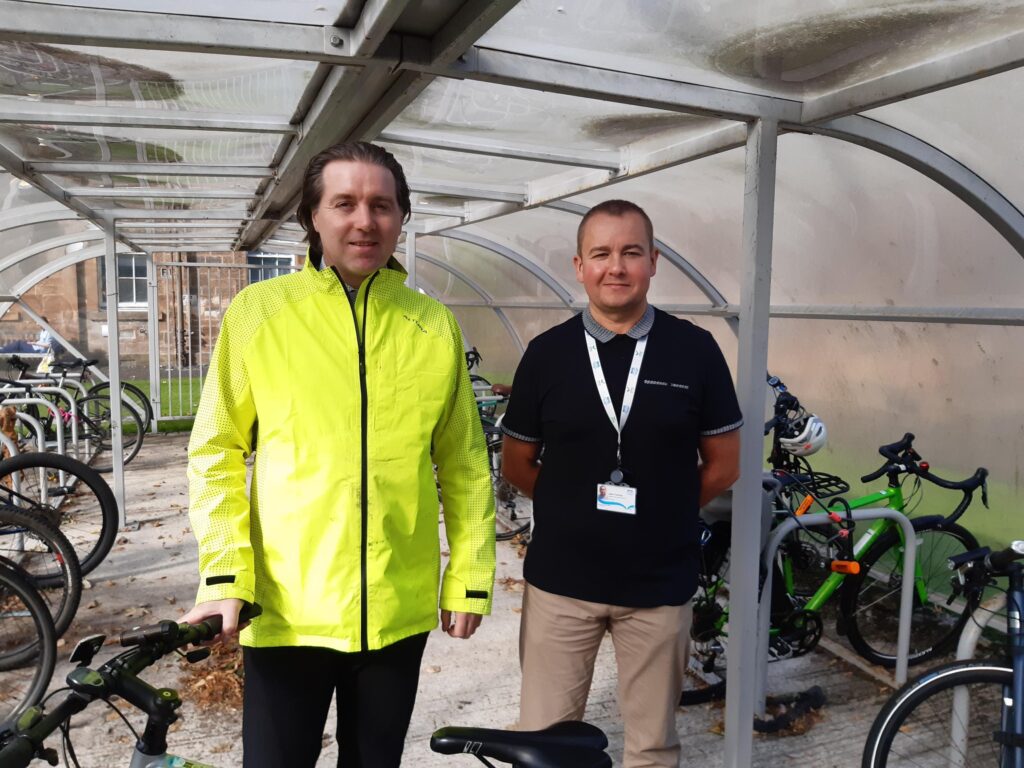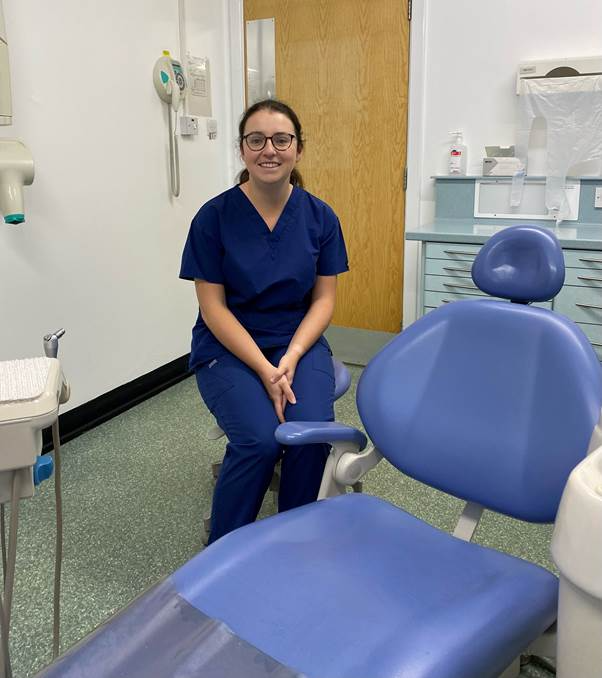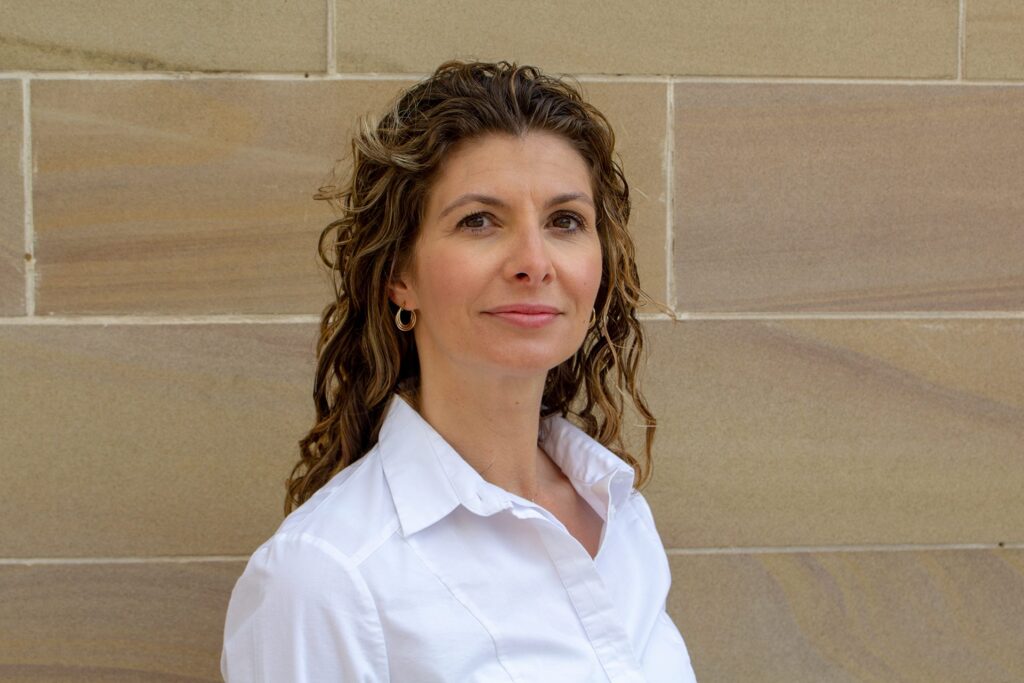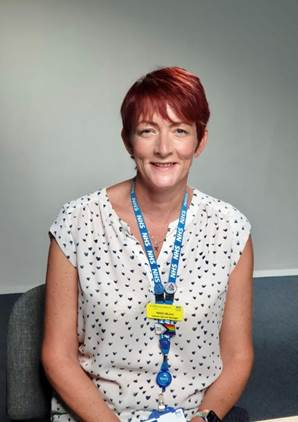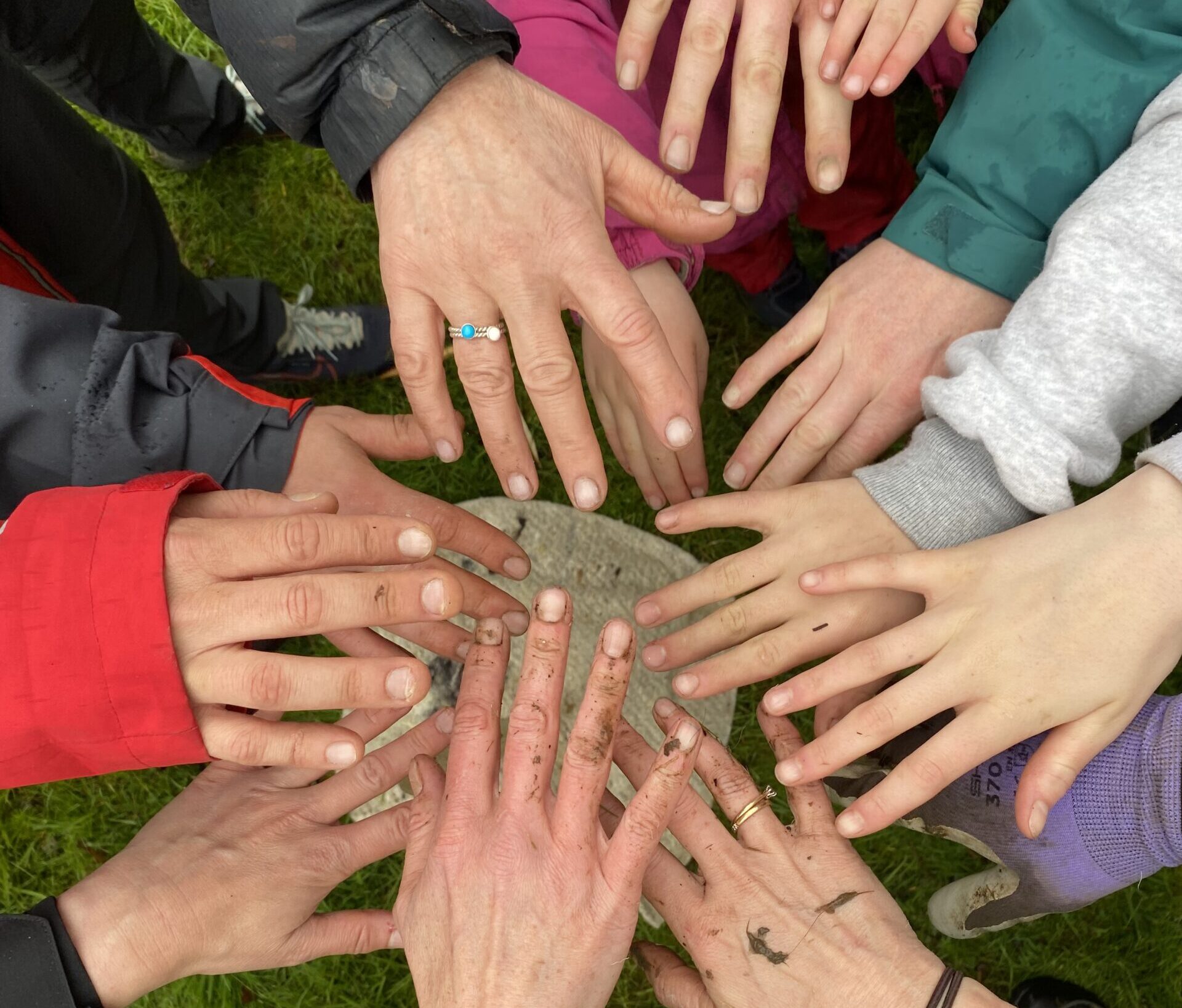The NHSGGC Watch Your Waste campaign aims to help raise awareness of following the correct waste procedures to both staff and patients on our sites across NHS Greater Glasgow and Clyde.
Watch Your Waste Facts and Aims
- It costs over 3 times more to dispose of orange waste than general waste.
- Reducing contamination of orange waste by just 10 percent would be equivalent to planting almost 1,700 trees.
- Up to 50% of the contents of the average orange bag is not clinical waste.
- Promote correct waste segregation to reduce our carbon footprint and associated financial costs.
If we act on the above and put hospital waste in the correct bin we will help save money and the planet.
Waste Types and Segregation
One of the main aims of this campaign is to ensure staff and patients know what bins they should be using depending on the types of waste that they are disposing.
Orange Bins – Clinical Waste
Examples of what can go in orange bins
- Contaminated PPE
- Potentially infectious waste
- Dressings
- Swabs
- Any residual liquids that are gelled
Examples of what can’t go in orange bins
- Sharps or metals
- Uncontaminated paper towels
- Linen
- Packaging and recyclates
Orange Bin Waste Segregation Diagram
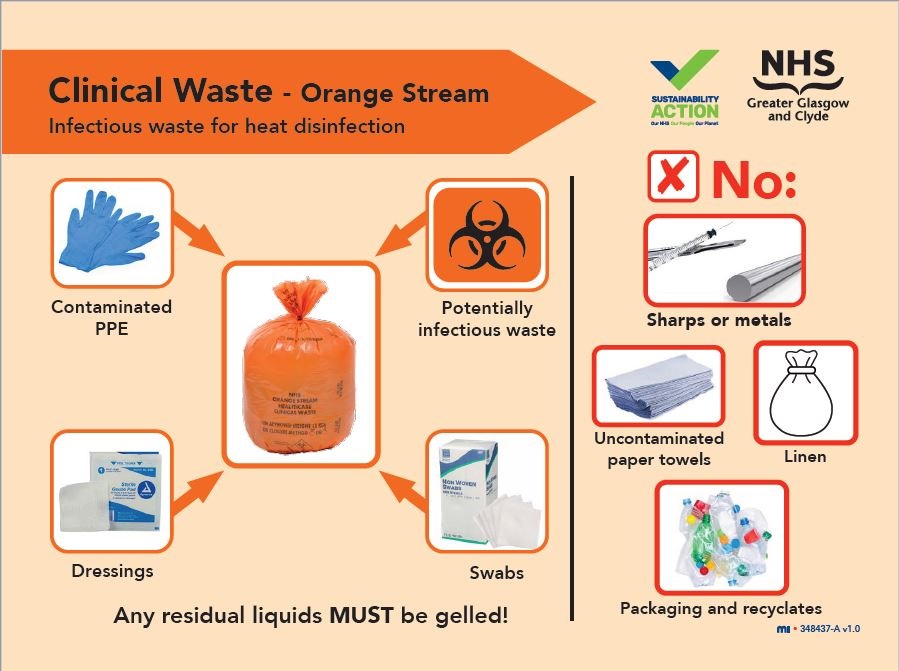
Black Bins – Residual Waste
Examples of what can go in black bins
- Coffee cups
- Uncontaminated paper towels
- Empty packaging for drinks, crisps and polystyrene
- Uncleaned containers and food waste
Examples of what can’t go in black bins
- Sharps
- Potentially infectious waste
- Glass or recyclates
- Linen
Black Bin Waste Segregation Diagram
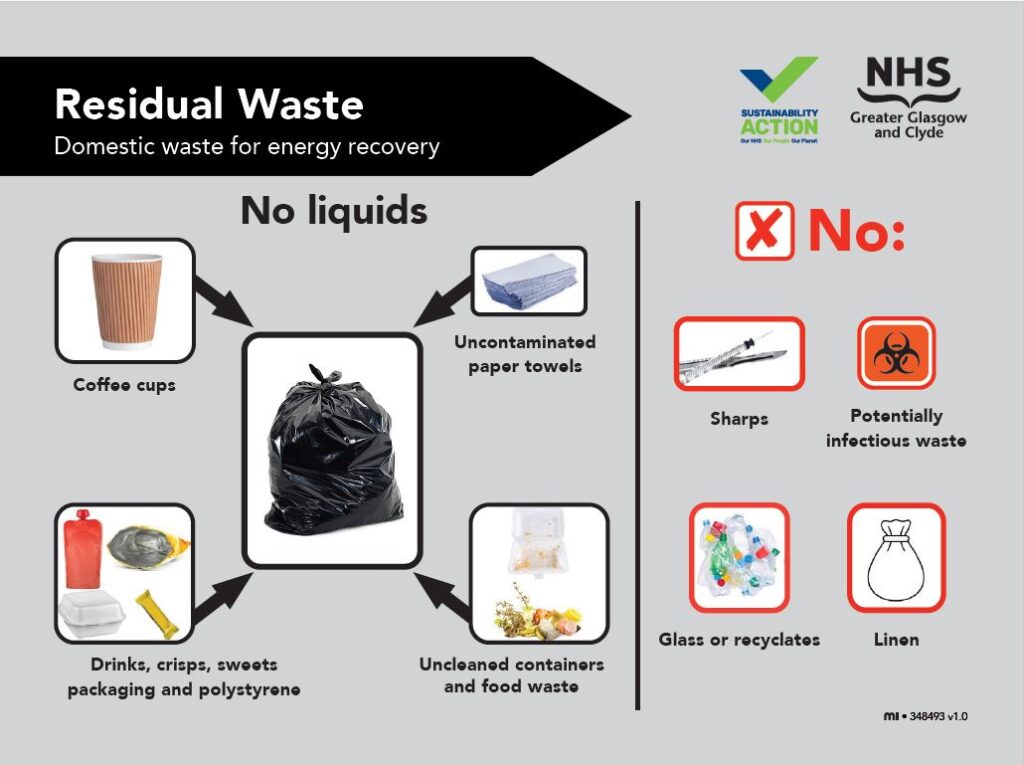
Clear Bins – Recycling Waste
Examples of what can go in clear recycling bins
- Metal
- Plastic
- Paper
- Cardboard
Examples of what can’t go in clear recycling bins
- Glass
- Food
- Black bin/waste products
- Orange Bin/waste products
- Linen waste products
Recycling Waste Segregation Diagram
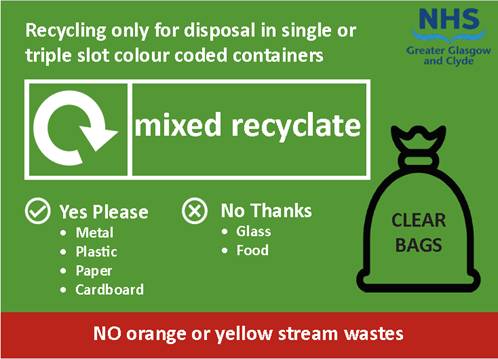
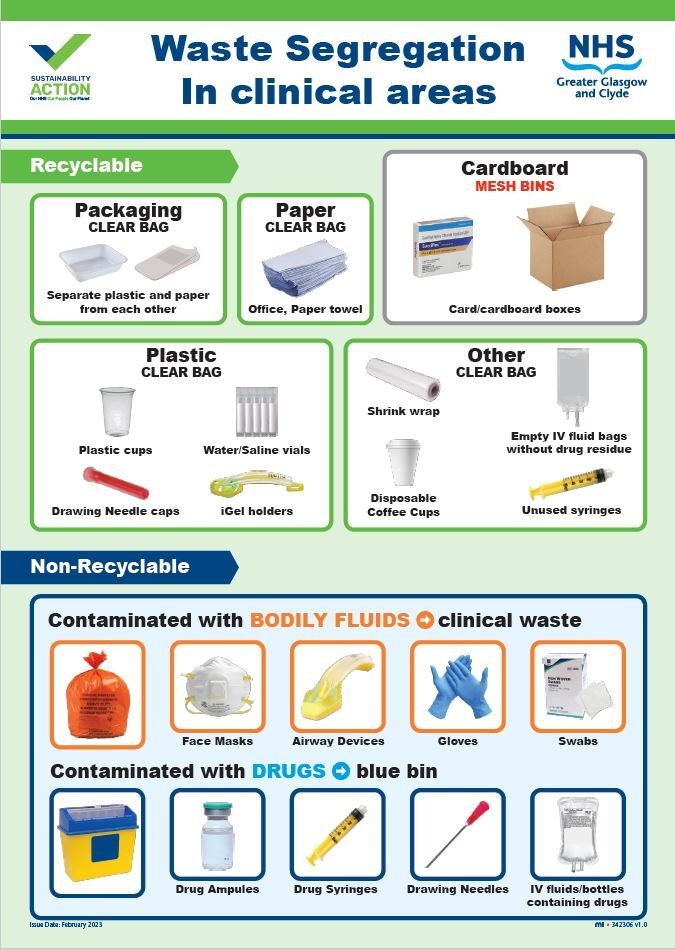
Watch Your Waste Awareness Posters
Click the below posters to view and download for printing and use on NHSGGC sites.
Further Waste Resources for Staff
NHSGGC’s innovative approach
NHSGGC is committed to taking an innovative approach to driving out waste, delivering year-on-year reductions in cost and volumes.
NHSGGC delivers healthcare services across a wide portfolio of settings, resulting in the production of a correspondingly broad range of wastes.
We are responsible for adhering to the waste hierarchy as far as is reasonably practicable, enacting a waste minimisation strategy and implementing circular economy principles.
In the workplace, a large variety of wastes are produced; these can be classified broadly into the following six ‘core’ waste streams:
- Healthcare (including clinical) waste – waste produced as a direct result of healthcare activities which may pose a risk of infection and/or is medicinally contaminated;
- Other (non-healthcare) special wastes – waste with hazardous characteristics produced from support (non-healthcare) activities, such as paints, batteries, and waste electrical and electronic equipment (WEEE);
- Source-segregated Recyclates – glass, paper, card, plastics, metals, and other metals suitable for recycling;
- Construction waste – Minor Estates and capital projects works;
- Food waste – unwanted food from patients, staff, and visitors of the site;
- Residual waste – the fraction of waste that remains once all special waste, recyclates and food have been removed at source. This is typically described as ‘black bag’, ‘domestic’ or municipal waste.
Waste Segregation – LearnPro module
NHSGGC is committed to implementing best practice when it comes to waste segregation. Every waste type produced within a healthcare facility will require a different disposal method with different costs and GHG emissions.
The new module on Waste Segregation is now available to staff on the LearnPro platform. This covers the different waste streams, colour-code segregation system, legal compliance and best practices and helps ensure the safety of all staff involved in waste disposal procedures.
The Waste Segregation Module can be accessed by going to LearnPro and searching for GGC: 310 Waste Segregation under Specialist Subjects or simply by clicking on the link below.
Global Recycling Day
On the 18th of March we celebrated Global Recycling Day to raise a global awareness of recycling and reducing waste in our environment. Recycling means that there is less waste buried on our landfill and it ensures the protection of wildlife and ecosystem.
Reasons you should recycle more
- Reduces the likelihood of environmental harm
- Saves energy
- Prevents pollution
- Reduces landfill disposal
- Creates economic benefits
- Saves natural resources
By improving our recycling we can keep our environment clean and protect our health.
Guidance Material and Posters
The Waste Team is continuing to invest in the development of visual material (e.g., toolbox talks, guidance posters, bin lid stickers) to help staff, patients and visitors to make the best decision when it comes to segregating waste correctly.
The materials displayed below are available for staff and can be ordered via Medical Illustration by providing the mi code located in the lower right corner. We recommend you contact the Waste Team before ordering any material in case it is already available for you.

